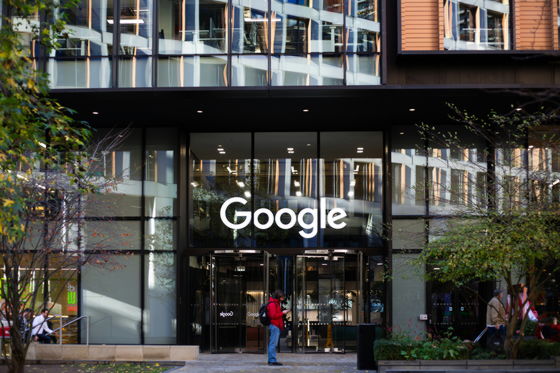Google refutes DOJ's proposed remedies for antitrust violations, arguing that 'smartphone prices will go up' and 'users use Google because they want to use it'

Google was sued by
Why DOJ's proposed remedies harm America
https://blog.google/outreach-initiatives/public-policy/doj-search-remedies-apr-2025/

In October 2020, the DOJ sued Google, alleging that 'Google has unlawfully maintained a monopoly in the search and search advertising markets through anticompetitive and exclusionary practices.' In August 2024, Judge Amit P. Mehta of the U.S. District Court for the District of Columbia, who is the judge in charge of the case, ruled that Google violated antitrust laws, stating that 'Google's actions constitute a monopoly in general search services and general search text advertising.'
Federal judge rules that Google is violating antitrust laws by paying to maintain its position in smartphone search - GIGAZINE

In response to this ruling, the DOJ has proposed corrective measures to Google, forcing the company to sell its Chrome business. Google, on the other hand, has opposed the DOJ's corrective measures, arguing that they ' far exceed the court's judgment ' and that ' selling Chrome would affect national security .'
On April 20, 2025, Lee Ann Mulholland, Google's vice president of regulatory affairs, once again criticized the DOJ's antitrust lawsuit against Google's search business as an 'outdated lawsuit.' Mulholland noted, 'With new services like ChatGPT and DeepSeek on the rise, DOJ's comprehensive proposed remedies are no longer just unnecessary, but harmful.'
Google challenges the Supreme Court's ruling that it violated antitrust laws and has indicated it intends to appeal. 'But first the Supreme Court must determine the best remedy for its liability ruling,' Mulholland said. 'If we go to trial, the DOJ's unprecedented proposal would go far beyond the Supreme Court's ruling and would have profoundly negative effects on American consumers, our economy and technology leadership.'

Google gave specific examples of how the DOJ's proposed remedies could have a negative impact:
The DOJ proposal would make it harder for users to access their favorite services. Users use Google because they want to, not because they need to. But the DOJ proposal would force search services like Microsoft's Bing as the default setting on browsers and smartphones, making it harder for users to access Google.
DOJ's proposed measures to thwart competition for search distribution rights would lead to higher prices and slower innovation. Device makers such as FireFox rely on search distribution revenue (revenue from Google in exchange for adopting Google search). Losing this revenue would make phones more expensive and undermine the web browsers that consumers use every day.
Mozilla, the developer of Firefox, has also argued that the proposed measures would jeopardize Mozilla's revenue streams and put Mozilla's future in jeopardy.
Mozilla, the developer of Firefox, claims that Google's antitrust lawsuit will destroy Google's various businesses and put its operating funds in a pinch - GIGAZINE

The DOJ proposal would put users' privacy and security at risk by forcing Google to share their most sensitive and private search queries with companies they've probably never heard of. Users' personal information would be exposed to companies that don't have the same world-class security protections as Google, without their permission, and could be exploited by bad actors.
DOJ's proposal would impede how AI is developed and lead to a government-appointed committee regulating product design and development. This would stifle American innovation at a critical juncture: we are in a fierce global race with China for the next generation of technology leadership, and Google is at the forefront of American companies making scientific and technological breakthroughs.
DOJ's proposal to split up Chrome and Android would destroy what Google has built over the years and given away for free, harm the business that was built on it, and threaten security. Google keeps more people safe online than any other company in the world, and separating Chrome and Android from our technology, security, and operational infrastructure would not only pose cybersecurity and even national security risks, but would also make our devices more expensive.
Google has previously expressed concerns about selling off its Chrome and Android businesses.
Google expresses concern over Department of Justice's consideration of 'splitting up Chrome and Android businesses' - GIGAZINE

'There is a better way - a way to address the Supreme Court's decision without undermining consumers, America's economy, technology leadership, and national security,' Mulholland said. 'Our proposed remedy achieves these goals by focusing on the contentious nature of the search distribution agreement at issue in this case.'
You can find out more about Google's proposed corrective measures in the following article.
Google proposes corrective measures in response to antitrust violations and requests to sell Chrome business - GIGAZINE

in Web Service, Posted by logu_ii